Graduate Fellowship Recipients
Graduate Fellowship Recipients
Congratulations to this year's winners! If you are interested in applying for one of the Society of Ethnobiology’s Graduate Research Fellowships, see the announcement here.
- 2024 Graduate Research Fellows
- 2023 Graduate Research Fellows
- 2022 Graduate Research Fellows
- 2021 Graduate Research Fellows
- 2020 Graduate Research Fellows
- 2019 Graduate Research Fellows
- 2018 Graduate Research Fellows
- 2017 Graduate Research Fellows
- 2016 Graduate Research Fellows
- 2015 Graduate Research Fellows
2024 GRADUATE RESEARCH FELLOWS
Justin Nolan Ecological Knowledge Research Fellowship:
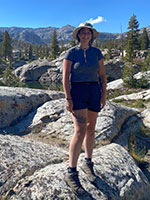 Alyssa Zandvliet (Simon Fraser University). Alyssa is a first year MA student in the Individualized Interdisciplinary Studies (INS) program at Simon Fraser University where she is part of the Historical Ecological Research (HER) lab. Alyssa’s research interests include historical ecology, habitat restoration, and environmental history and she has further personal interests in botany and mycology. Her current research is occurring in collaboration with Cowichan Tribes and uses historical-ecological approaches in order to understand and characterize settler colonial and Quw’utsun (Cowichan, Coast Salish) land use legacies in the Cowichan River Estuary. Previous work has revealed that the region has been greatly impacted by resource extraction, agriculture, and urbanization. Restoration of the estuary is currently underway, and this research may provide critical context for the integration of a food-systems approach that will contribute to the community/environmental revitalization and resilience of the estuary.
Alyssa Zandvliet (Simon Fraser University). Alyssa is a first year MA student in the Individualized Interdisciplinary Studies (INS) program at Simon Fraser University where she is part of the Historical Ecological Research (HER) lab. Alyssa’s research interests include historical ecology, habitat restoration, and environmental history and she has further personal interests in botany and mycology. Her current research is occurring in collaboration with Cowichan Tribes and uses historical-ecological approaches in order to understand and characterize settler colonial and Quw’utsun (Cowichan, Coast Salish) land use legacies in the Cowichan River Estuary. Previous work has revealed that the region has been greatly impacted by resource extraction, agriculture, and urbanization. Restoration of the estuary is currently underway, and this research may provide critical context for the integration of a food-systems approach that will contribute to the community/environmental revitalization and resilience of the estuary.
Urban Ethnobiology Fellowship:
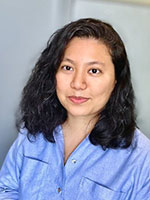 Vinisha Singh Basnet (University of Illinois Urbana Champaign). Vinisha Singh Basnet is a doctoral candidate in the Department of Urban and Regional Planning and is concurrently pursuing a master’s degree in Entomology at the School of Integrative Biology, University of Illinois Urbana Champaign. She studies and designs planning interventions that focus on human-insect entanglements. Currently, her research on bed bugs attempts to examine how bed bugs, in low-income neighborhoods in the U.S., are embedded within complex social-ecological systems. The Urban Ethnobiology Fellowship will assist her in conducting ethnographic research in Champaign County, Illinois, to understand the concentration of bed bug infestations in low-income neighborhoods. Additionally, she is working with the INHS Medical Entomology Lab at UIUC to investigate the efficacy of entomopathogenic fungus on bed bugs. Her work uses different methodologies and disciplinary lenses to address issues that stem from human-nonhuman interaction and aims to design socially just and sustainable futures.
Vinisha Singh Basnet (University of Illinois Urbana Champaign). Vinisha Singh Basnet is a doctoral candidate in the Department of Urban and Regional Planning and is concurrently pursuing a master’s degree in Entomology at the School of Integrative Biology, University of Illinois Urbana Champaign. She studies and designs planning interventions that focus on human-insect entanglements. Currently, her research on bed bugs attempts to examine how bed bugs, in low-income neighborhoods in the U.S., are embedded within complex social-ecological systems. The Urban Ethnobiology Fellowship will assist her in conducting ethnographic research in Champaign County, Illinois, to understand the concentration of bed bug infestations in low-income neighborhoods. Additionally, she is working with the INHS Medical Entomology Lab at UIUC to investigate the efficacy of entomopathogenic fungus on bed bugs. Her work uses different methodologies and disciplinary lenses to address issues that stem from human-nonhuman interaction and aims to design socially just and sustainable futures.
2023 GRADUATE RESEARCH FELLOWS
Justin Nolan Ecological Knowledge Research Fellowship:
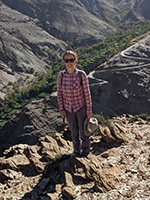 Adele Woodmansee (Cornell University). Adele is a second year MSc student in Soil and Crop Sciences at Cornell University, where she is a member of the Systems Agronomy for Global Development research group. She seeks to carry out research that illuminates the multidimensional value of traditional agroecosystems. Her current research, which she plans to continue throughout her MSc and subsequent PhD, focuses on climate adaptation in agricultural systems of the Moroccan High Atlas Mountains. She focuses on farmers’ experiences with change and aims to develop adaptation strategies that utilize local agrobiodiversity and are informed by community priorities.
Adele Woodmansee (Cornell University). Adele is a second year MSc student in Soil and Crop Sciences at Cornell University, where she is a member of the Systems Agronomy for Global Development research group. She seeks to carry out research that illuminates the multidimensional value of traditional agroecosystems. Her current research, which she plans to continue throughout her MSc and subsequent PhD, focuses on climate adaptation in agricultural systems of the Moroccan High Atlas Mountains. She focuses on farmers’ experiences with change and aims to develop adaptation strategies that utilize local agrobiodiversity and are informed by community priorities.
Urban Ethnobiology Fellowship:
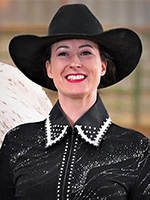 Evelien Deelen (Washington State University). Evelien is a doctoral student in cultural anthropology and ethnobiology at Washington State University. She conducts research on ethnoveterinary care, cowboy culture, and human-horse relationships in the United States Inland Northwest. For her dissertation, Evelien addresses how settler-descendant horse owners culturally construct equine illness through their engagements with horses and horse-people. Evelien will use the Urban Ethnobiology Fellowship to conduct ethnographic fieldwork in the summer of 2023 and collect information on illness domains and explanatory models of equine illnesses.
Evelien Deelen (Washington State University). Evelien is a doctoral student in cultural anthropology and ethnobiology at Washington State University. She conducts research on ethnoveterinary care, cowboy culture, and human-horse relationships in the United States Inland Northwest. For her dissertation, Evelien addresses how settler-descendant horse owners culturally construct equine illness through their engagements with horses and horse-people. Evelien will use the Urban Ethnobiology Fellowship to conduct ethnographic fieldwork in the summer of 2023 and collect information on illness domains and explanatory models of equine illnesses.
2022 GRADUATE RESEARCH FELLOWS
Justin Nolan Ecological Knowledge Research Fellowship:
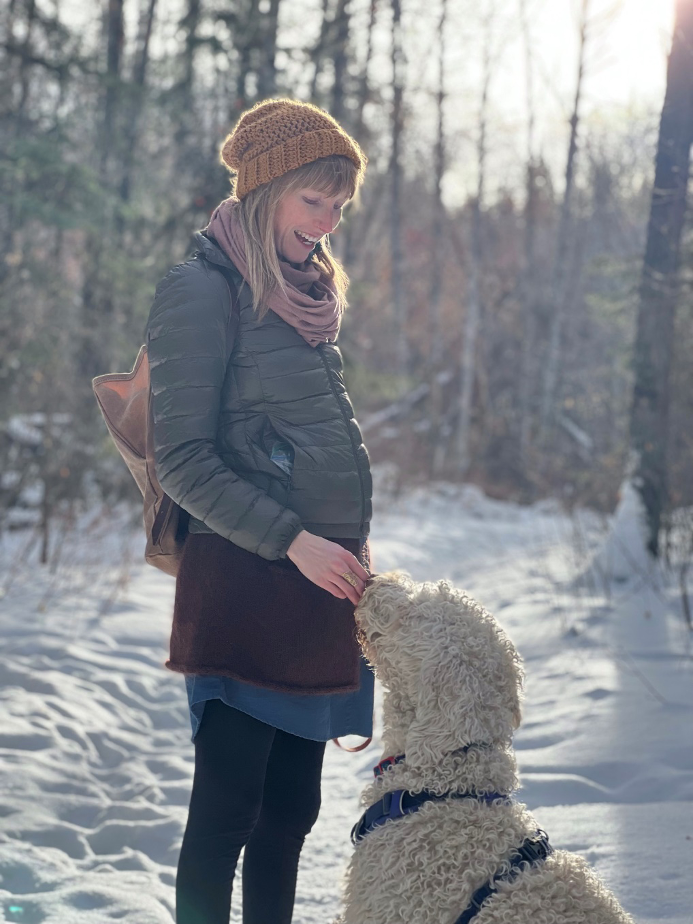 Meghan Lindholm (University of Saskatchewan). Meghan is in her second year of the master’s program in Environmental Anthropology at the University of Saskatchewan. Her research centers within Bigstone Cree Nation in northern Alberta, investigating the impacts that natural resource extraction, such as oil, gas, and logging, have on the ability of Bigstone members to access and harvest edible and medicinal plants, and how this affects overall food security and food sovereignty within the community. Working in partnership with community members, she aims to uncover ways that these disruptive impacts can be reduced or mitigated.
Meghan Lindholm (University of Saskatchewan). Meghan is in her second year of the master’s program in Environmental Anthropology at the University of Saskatchewan. Her research centers within Bigstone Cree Nation in northern Alberta, investigating the impacts that natural resource extraction, such as oil, gas, and logging, have on the ability of Bigstone members to access and harvest edible and medicinal plants, and how this affects overall food security and food sovereignty within the community. Working in partnership with community members, she aims to uncover ways that these disruptive impacts can be reduced or mitigated.
Jessica Mae Orozco Indigenous Ethnobiologist Fellowship:
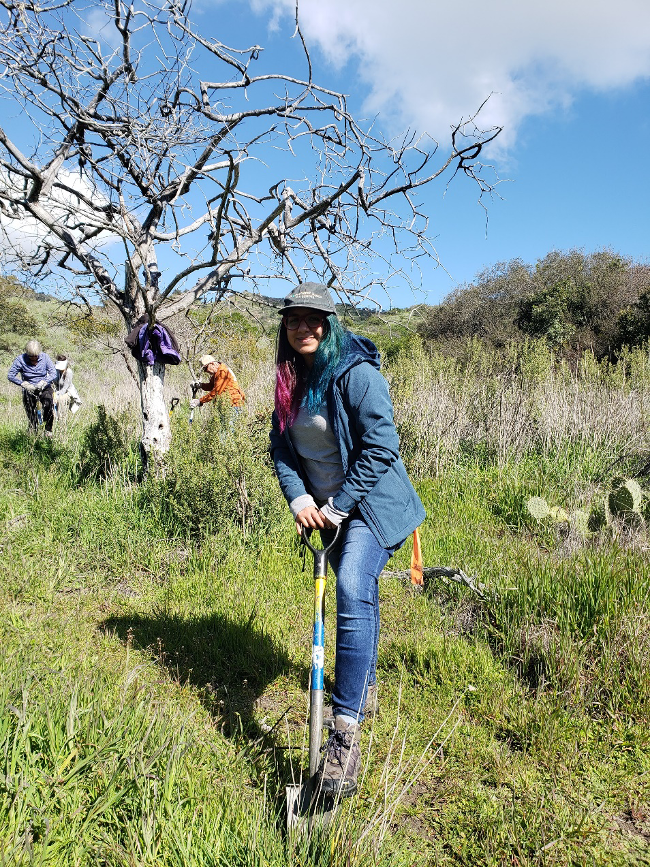 Guadalupe Maldonado Andrade (University of California, Riverside). Guadalupe Maldonado Andrade is a doctoral student in plant biology at the University of California, Riverside. Having grown up for a time in Mexico, she learned the importance of medicinal plants for all sorts of ailments. She is now investigating in south central Mexico the spatial, cultural, and biochemical facets of medicinal plants that induce abortion. As a survivor and supporter of La Marea Verde (the movement in Mexico and South America demanding reproductive rights and justice for femicide and gender violence), she hopes to continue this work post-Ph.D. to investigate safe amounts of ethnobotanical infusions that act as abortifacients.
Guadalupe Maldonado Andrade (University of California, Riverside). Guadalupe Maldonado Andrade is a doctoral student in plant biology at the University of California, Riverside. Having grown up for a time in Mexico, she learned the importance of medicinal plants for all sorts of ailments. She is now investigating in south central Mexico the spatial, cultural, and biochemical facets of medicinal plants that induce abortion. As a survivor and supporter of La Marea Verde (the movement in Mexico and South America demanding reproductive rights and justice for femicide and gender violence), she hopes to continue this work post-Ph.D. to investigate safe amounts of ethnobotanical infusions that act as abortifacients.
Urban Ethnobiology Fellowship:
 Amy Eddins (University of North Texas). Amy is a doctoral candidate in environmental science at the University of North Texas (UNT) in Denton. She received her B.S. in Horticulture from Texas A&M University and her M.S. in Applied Geography at UNT. Shas been an educator for over 25 years teaching public high school biology and environmental science courses in El Paso, Texas, and currently continues to teach physical anthropology at UNT. The Urban Ethnobiology Fellowship will support Amy’s dissertation research investigating public perceptions of local coyote populations within Denton, Texas. Her research interests include wildlife and habitat conservation in urban and suburban environments, wildlife co-existence, compassionate conservation, citizen science, and community outreach wildlife programs.
Amy Eddins (University of North Texas). Amy is a doctoral candidate in environmental science at the University of North Texas (UNT) in Denton. She received her B.S. in Horticulture from Texas A&M University and her M.S. in Applied Geography at UNT. Shas been an educator for over 25 years teaching public high school biology and environmental science courses in El Paso, Texas, and currently continues to teach physical anthropology at UNT. The Urban Ethnobiology Fellowship will support Amy’s dissertation research investigating public perceptions of local coyote populations within Denton, Texas. Her research interests include wildlife and habitat conservation in urban and suburban environments, wildlife co-existence, compassionate conservation, citizen science, and community outreach wildlife programs.
2021 GRADUATE RESEARCH FELLOWS
Justin Nolan Ecological Knowledge Research Fellowship:
Florencia Pech-Cárdenas (University of Minnesota).
Urban Ethnobiology Fellowship:
Alexandria Mitchem (Columbia University).
2020 GRADUATE RESEARCH FELLOWS
Jessica Mae Orozco Indigenous Ethnobiologist Fellowship:
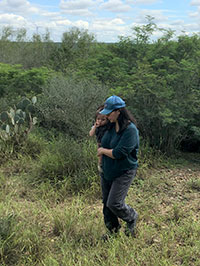 Dawn D. Davis, Newe (Shoshone-Bannock). Dawn is currently pursuing her Ph.D. in Natural Resources at the University of Idaho. Her research is focused on analyzing peyote (Lophophora williamsii) habitat loss, and determining preferred habitat for the peyote through the use of GIS. Her spatial analysis work will include input from Indigenous peoples and Texas landowners, both of which will help to address conservation measures which can provide local and long-term environmental observations. These observations can then guide adaptive management plans.
Dawn D. Davis, Newe (Shoshone-Bannock). Dawn is currently pursuing her Ph.D. in Natural Resources at the University of Idaho. Her research is focused on analyzing peyote (Lophophora williamsii) habitat loss, and determining preferred habitat for the peyote through the use of GIS. Her spatial analysis work will include input from Indigenous peoples and Texas landowners, both of which will help to address conservation measures which can provide local and long-term environmental observations. These observations can then guide adaptive management plans.
Ecological Knowledge Research Fellowship:
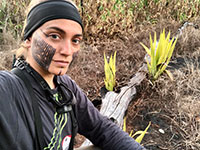 Katie Murtough (University of Oxford). Katie is currently pursuing her Ph.D. from the University of Oxford. Her research focus areas are ethno-ornithology, linguistics, traditional ecological knowledge, and conservation. With the fellowship, Katie will be working with Mebêngôkre-Kayapó communities to establish a cultural context for hyacinth macaw (Anodorhynchus hyacinthinus) conservation, as well as examine a potential process for embedding cultural context into species conservation action plans.
Katie Murtough (University of Oxford). Katie is currently pursuing her Ph.D. from the University of Oxford. Her research focus areas are ethno-ornithology, linguistics, traditional ecological knowledge, and conservation. With the fellowship, Katie will be working with Mebêngôkre-Kayapó communities to establish a cultural context for hyacinth macaw (Anodorhynchus hyacinthinus) conservation, as well as examine a potential process for embedding cultural context into species conservation action plans.
Urban Ethnobiology Fellowship:
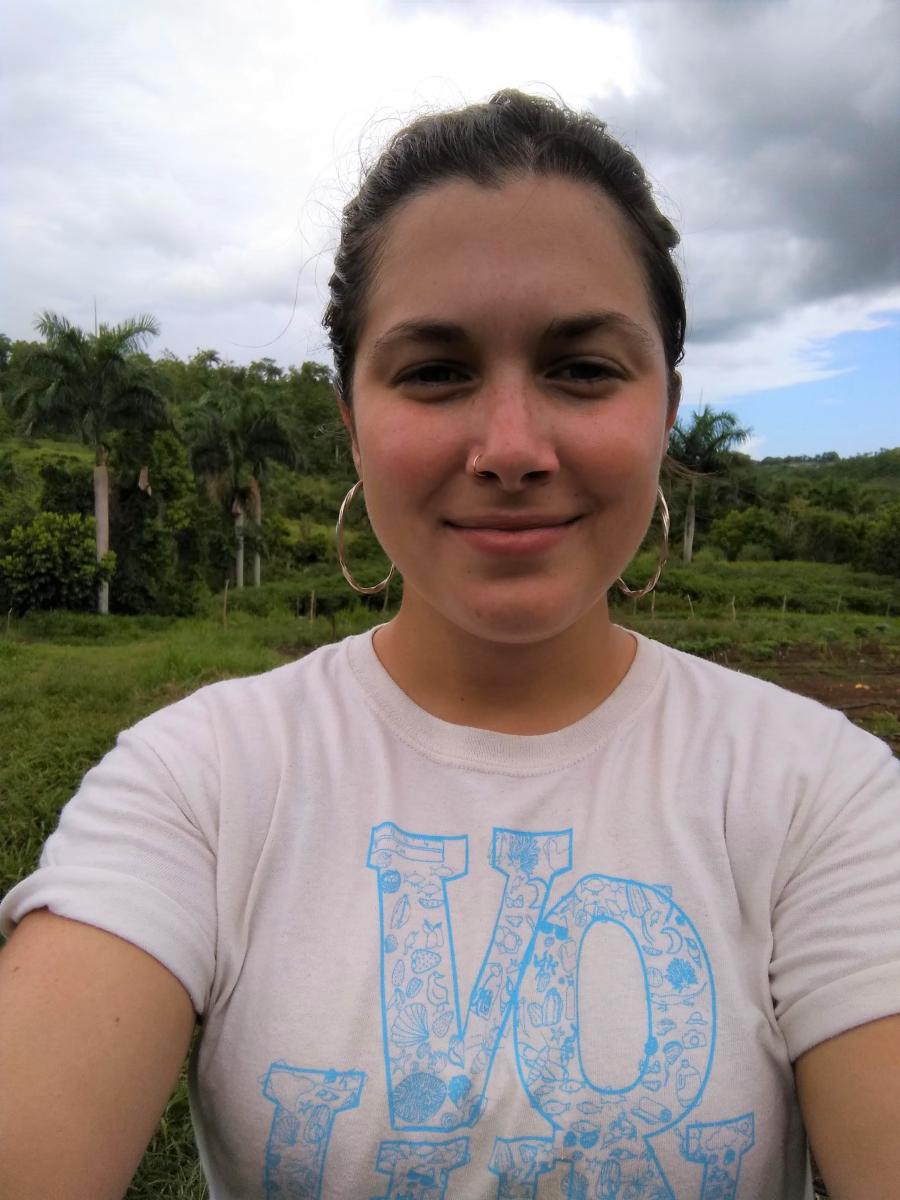 Natasha Fernandez-Perez (University of California, Berkeley). Natasha is currently pursuing her Ph.D. in Anthropology at the University of California, Berkeley. Her focus areas are foodways, environmental politics, disaster capitalism, and social justice. With the Urban Ethnobiology Fellowship, she will undertake her dissertation fieldwork in Puerto Rico. She will be researching how food relates to visions of sovereignty in the archipelago. She will study both modern urban foodways with transnational ties, as well as the recent local agroecological farming movement post-Hurricane María. The latter is using ecological human-plant relationships for the crafting of decolonized food landscapes and political freedom in the archipelago.
Natasha Fernandez-Perez (University of California, Berkeley). Natasha is currently pursuing her Ph.D. in Anthropology at the University of California, Berkeley. Her focus areas are foodways, environmental politics, disaster capitalism, and social justice. With the Urban Ethnobiology Fellowship, she will undertake her dissertation fieldwork in Puerto Rico. She will be researching how food relates to visions of sovereignty in the archipelago. She will study both modern urban foodways with transnational ties, as well as the recent local agroecological farming movement post-Hurricane María. The latter is using ecological human-plant relationships for the crafting of decolonized food landscapes and political freedom in the archipelago.
2019 GRADUATE RESEARCH FELLOWS
Jessica Mae Orozco Indigenous Ethnobiologist Fellowship:
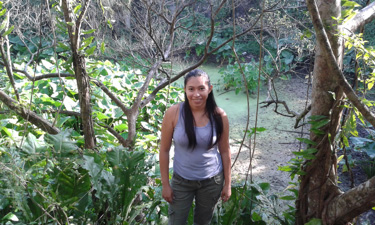 Florencia Pech-Cardenas (Natural Resources Science and Management, University of Minnesota). Florencia is a Yucatecan Maya woman from the Yucatan Peninsula in Mexico. She is also a botanist and a current Ph.D. student at the University of Minnesota’s College of Food, Agricultural and Natural Resource Sciences (CFANS). Florencia’s areas of interest include indigenous natural resource management, sustainability, international development and tourism. Florencia’s research seeks to understand how handicraft production for the Yucatecan tourist market is influencing livelihoods and dry tropical forest management in Maya communities close to the World Heritage Site of Chichen Itza. Specifically, she is analyzing the social and environmental impacts of handicraft production by exploring ethnobotanical, ecological, socio-political and gender-related lenses of such production.
Florencia Pech-Cardenas (Natural Resources Science and Management, University of Minnesota). Florencia is a Yucatecan Maya woman from the Yucatan Peninsula in Mexico. She is also a botanist and a current Ph.D. student at the University of Minnesota’s College of Food, Agricultural and Natural Resource Sciences (CFANS). Florencia’s areas of interest include indigenous natural resource management, sustainability, international development and tourism. Florencia’s research seeks to understand how handicraft production for the Yucatecan tourist market is influencing livelihoods and dry tropical forest management in Maya communities close to the World Heritage Site of Chichen Itza. Specifically, she is analyzing the social and environmental impacts of handicraft production by exploring ethnobotanical, ecological, socio-political and gender-related lenses of such production.
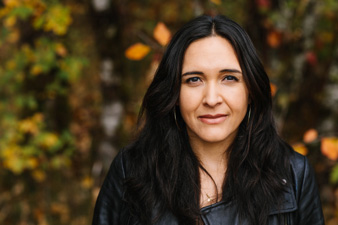 Leigh Joseph (Environmental Studies, University of Victoria). Leigh is a member of the Sḵwx̱wú7mesh (Squamish) First Nation. Her ancestral name is styawat and she is an ethnobotanist by training. She completed an MSc in ethnobotany and she is currently pursuing my PhD in ethnobotany at the University of Victoria. Her interest in the relationship between food and culture developed at an early age and was nourished by her visits with her great uncle, Chester Thomas, and her great auntie Eva at their home along the Nanaimo River. Her memories of that time include watching him smoke the salmon he caught from his dugout canoe and sharing nourishing meals every time they’d visit. These early experiences developed her awareness of how important the links between food, culture and family are. Having worked with a number of different First Nations communities within the field of ethnobotany over the past five years she is now focusing my doctoral work on exploring linkages between Indigenous plant relationships, land-based practices and health. Specifically she is focusing on how the Type 2 Diabetes crisis in two Indigenous Communities can be addressed through increased access to Indigenous foods, plant medicines and culturally related exercise. Leigh deeply values the importance of getting out onto the land and learning in a hands-on way about culturally important plants and how they connect us to place. She is motivated to share this aspect of her own learning with the Indigenous communities that she works with.
Leigh Joseph (Environmental Studies, University of Victoria). Leigh is a member of the Sḵwx̱wú7mesh (Squamish) First Nation. Her ancestral name is styawat and she is an ethnobotanist by training. She completed an MSc in ethnobotany and she is currently pursuing my PhD in ethnobotany at the University of Victoria. Her interest in the relationship between food and culture developed at an early age and was nourished by her visits with her great uncle, Chester Thomas, and her great auntie Eva at their home along the Nanaimo River. Her memories of that time include watching him smoke the salmon he caught from his dugout canoe and sharing nourishing meals every time they’d visit. These early experiences developed her awareness of how important the links between food, culture and family are. Having worked with a number of different First Nations communities within the field of ethnobotany over the past five years she is now focusing my doctoral work on exploring linkages between Indigenous plant relationships, land-based practices and health. Specifically she is focusing on how the Type 2 Diabetes crisis in two Indigenous Communities can be addressed through increased access to Indigenous foods, plant medicines and culturally related exercise. Leigh deeply values the importance of getting out onto the land and learning in a hands-on way about culturally important plants and how they connect us to place. She is motivated to share this aspect of her own learning with the Indigenous communities that she works with.
Ecological Knowledge Research Fellowship:
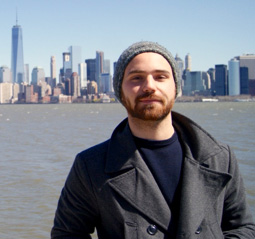 David Colozza (Department of Geography, King's College London and National University of Singapore). David is a researcher on the joint PhD Geography programme at King’s College London and the National University of Singapore. His doctoral research focuses on studying the impact of socio-economic change, and particularly urbanisation, in Indonesia, on traditional local diets, knowledge and practices related to food. As part of his PhD research, David has conducted qualitative fieldwork in Yogyakarta, Indonesia, to study changes in dietary patterns over time, and to understand how and why traditional practices such as food selfproduction and sharing have persisted among local urban residents. David's broader research interests relate to the interactions between human and natural ecosystems, and particularly the links between agricultural production systems, biodiversity resources, and the local indigenous knowledge associated with these.
David Colozza (Department of Geography, King's College London and National University of Singapore). David is a researcher on the joint PhD Geography programme at King’s College London and the National University of Singapore. His doctoral research focuses on studying the impact of socio-economic change, and particularly urbanisation, in Indonesia, on traditional local diets, knowledge and practices related to food. As part of his PhD research, David has conducted qualitative fieldwork in Yogyakarta, Indonesia, to study changes in dietary patterns over time, and to understand how and why traditional practices such as food selfproduction and sharing have persisted among local urban residents. David's broader research interests relate to the interactions between human and natural ecosystems, and particularly the links between agricultural production systems, biodiversity resources, and the local indigenous knowledge associated with these.
Urban Ethnobiology Fellowship:
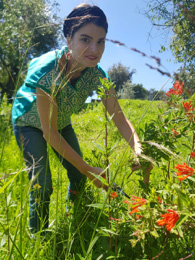 Josephine Tempesta (Universidad Autonoma de Queretaro, Mexico)
Josephine Tempesta (Universidad Autonoma de Queretaro, Mexico)
Josephine is currently pursuing a Masters degree in the Universidad Autónoma de Querétaro in Mexico and conducting research on the medicinal plants used for women’s reproductive health in the indigenous zone of ñähñu in the municipality of Amealco de Bonfil in Querétaro, Mexico. The health sovereignty of the population is vulnerable due to a loss of the language and culture, and the research’s main objective is biocultural conservation. Josephine will use the SOE fellowship to host an open event to foster the exchange of experiences concerning traditional medicine and to strengthen management practices and preparation of medicinal plants.
2018 GRADUATE RESEARCH FELLOWS
Ecological Knowledge Research Fellowship:
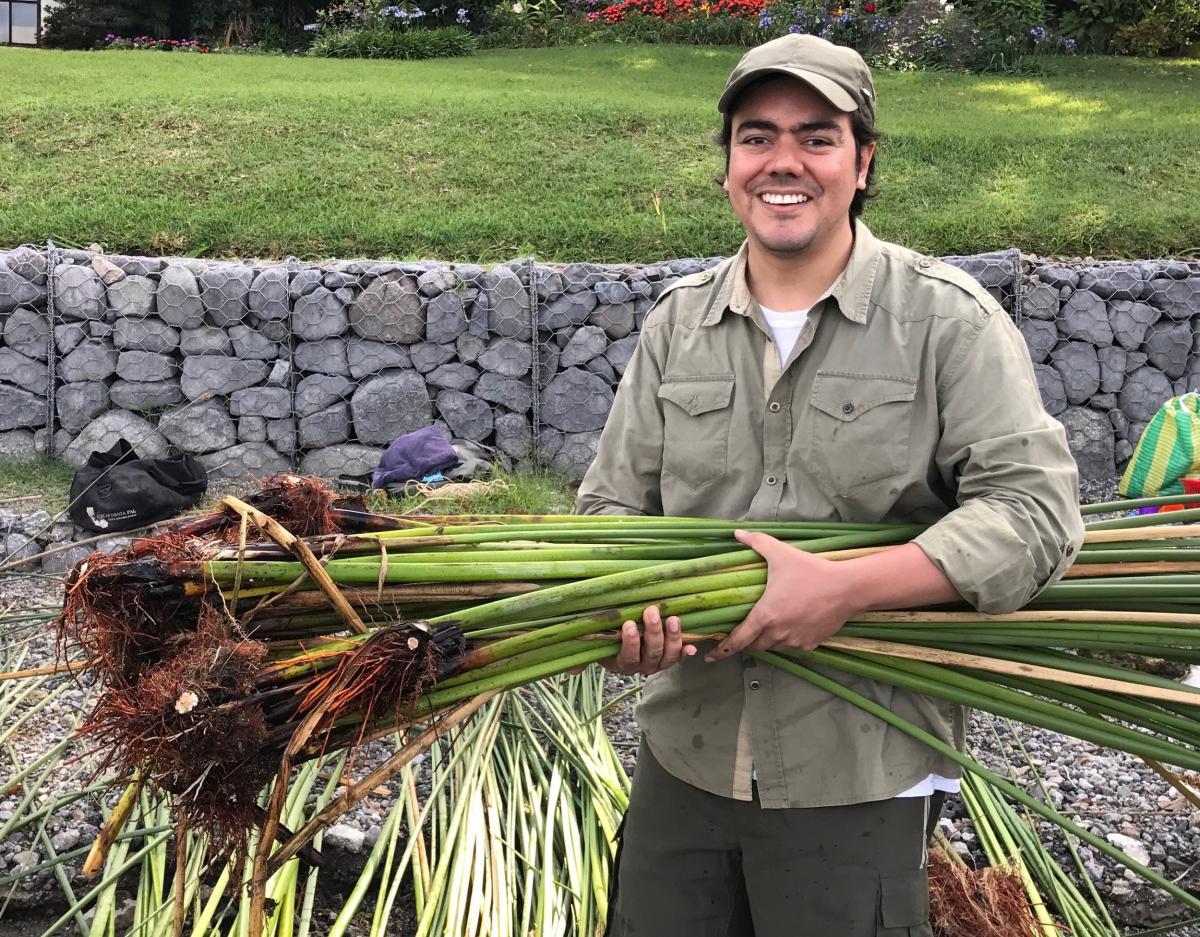 Jorge Garcia Polo, Environmental Science, State University of New York (SUNY).
Jorge Garcia Polo, Environmental Science, State University of New York (SUNY).
Jorge is a PhD student in the SUNY College of Environmental Science and Forestry. His research centers on wetland restoration informed by both traditional ecological knowledge and restoration ecology in Lake Atitlan, Guatemala. His overall interests are with freshwater ecosystems, ecological and biocultural restoration and climate change in Mesoamerica.
Indigenous Ethnobiologist Fellowship:
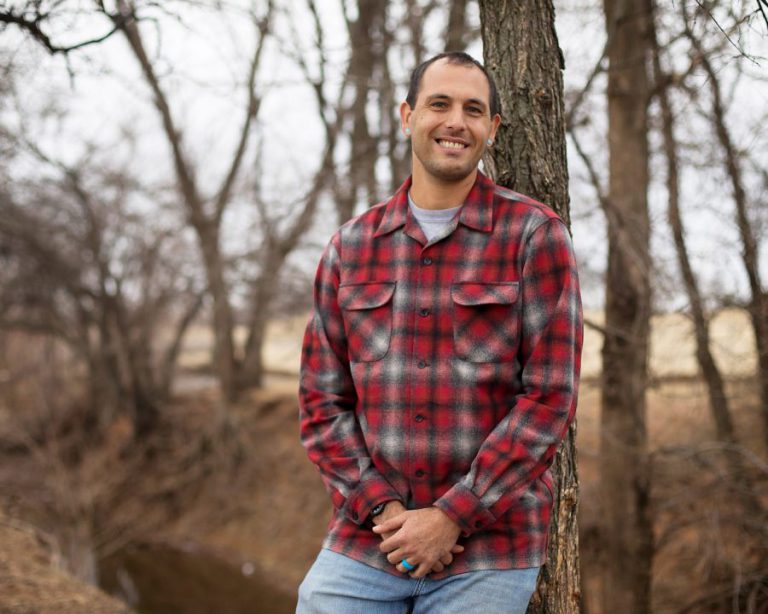 Kaya DeerInWater, Environmental Science and Bio-Cultural Restoration; State University of New York (SUNY).
Kaya DeerInWater, Environmental Science and Bio-Cultural Restoration; State University of New York (SUNY).
Kaya DeerInWater is an enrolled member of the Citizen Potawatomi Nation (CPN) in Oklahoma. He is currently a first-year graduate student studying Bio-Cultural Restoration in the SUNY College of Environmental Science and Forestry. Kaya’s research focuses on the traditional plant knowledge (TPK) of the Potawatomi. He is specifically interested in understanding the current and historic TPK of CPN members and how CPN member knowledge relates to the plants present on CPN tribal lands.
Urban Ethnobiology Fellowship:
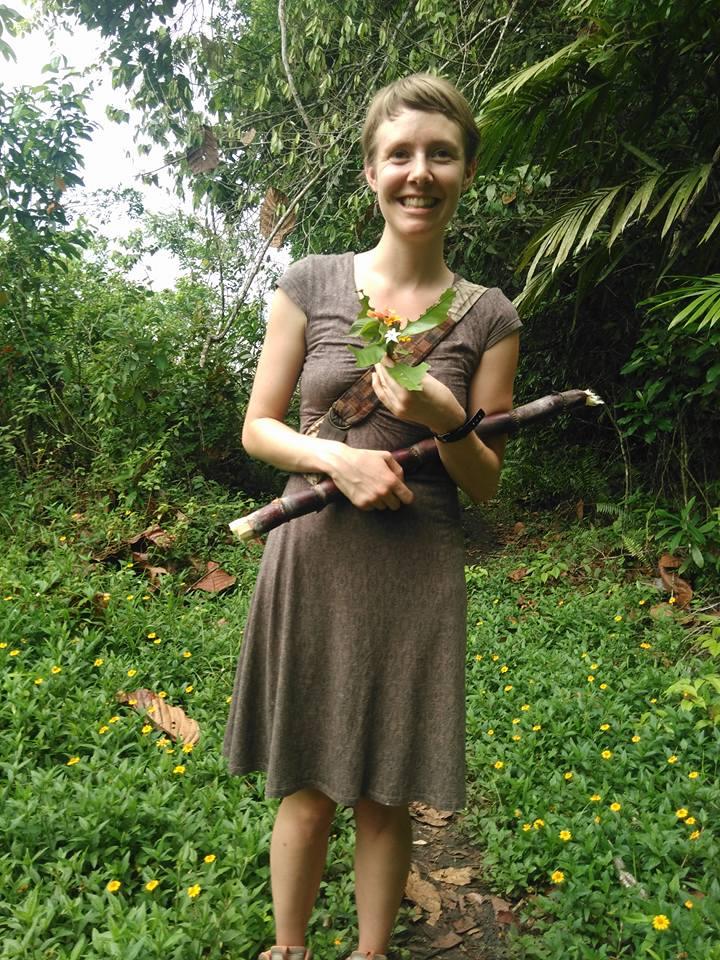 Amanda Thiel, Cultural Anthropology, Washington State University.
Amanda Thiel, Cultural Anthropology, Washington State University.
Amanda is a first-year PhD student at Washington State University. She conducts research with Guatemalan Q’eqchi’ Maya communities of various sizes—from rural village to semi-urban. Her research seeks to understand how acculturation and cultural values affect ethnobotanical medical knowledge and practice in these communities. Amanda’s previous fieldwork in one Q’eqchi’ Maya village centered around utilitarian aspects of local ethnobotany and the variation in the cultivation of medicinal plants in village homegardens.
2017 GRADUATE RESEARCH FELLOWS
Urban Ethnobiology Fellowship
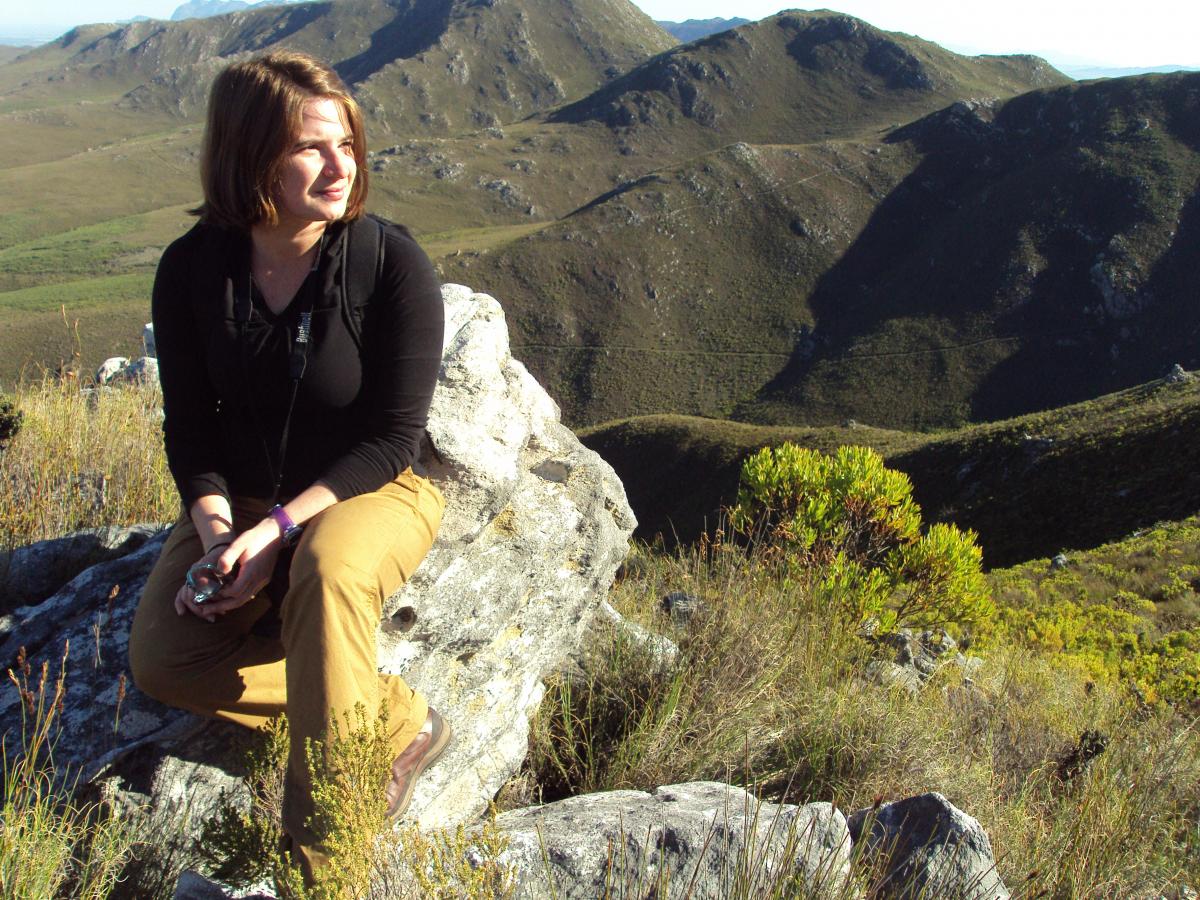 Amanda L. Ellwanger, PhD candidate in the Anthropology Department at the University of Texas at San Antonio. As an ecological anthropologist and ethnoprimatologist, Amanda’s research interests center on niche construction, primate behavioral ecology and behavioral flexibility, peoples’ attitudes and experiences with animals and the environment, social network analysis, human-animal-environment relationships, and conservation and management strategies to promote coexistence between people and nonhuman primates. The Urban Ethnobiology Fellowship will support her doctoral research to examine how human niche construction, via cultural behaviors and ecological impacts, influence chacma baboon foraging and social relationships in Western Cape, South Africa. Amanda’s research supports a broader perspective of community ecology by investigating how humans and animal mutually shape each other’s ecological and social environments.
Amanda L. Ellwanger, PhD candidate in the Anthropology Department at the University of Texas at San Antonio. As an ecological anthropologist and ethnoprimatologist, Amanda’s research interests center on niche construction, primate behavioral ecology and behavioral flexibility, peoples’ attitudes and experiences with animals and the environment, social network analysis, human-animal-environment relationships, and conservation and management strategies to promote coexistence between people and nonhuman primates. The Urban Ethnobiology Fellowship will support her doctoral research to examine how human niche construction, via cultural behaviors and ecological impacts, influence chacma baboon foraging and social relationships in Western Cape, South Africa. Amanda’s research supports a broader perspective of community ecology by investigating how humans and animal mutually shape each other’s ecological and social environments.
Ecological Knowledge Research Fellowship
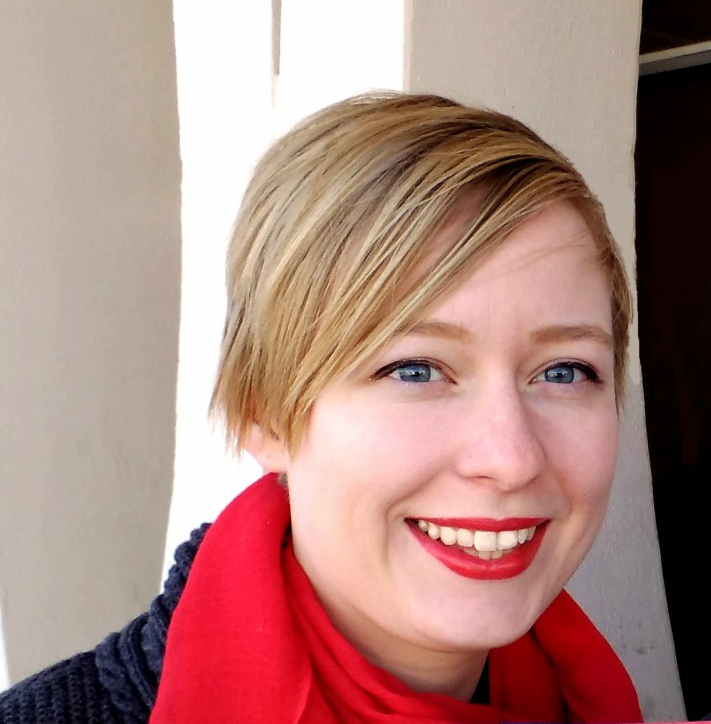 Nicole Mathwich, PhD student in Archaeology, University of Arizona, School of Anthropology. Nicole pursues her research interests in the intersections of ecology and colonialism at the University of Arizona and the Arizona State Museum. For her PhD research, Nicole investigates how indigenous peoples in southern Arizona and northern Sonora negotiated the colonial introduction of livestock into their own preexisting practices of agriculture, hunting, and gathering. Her research will examine seasonal livestock grazing and watering in the Sonoran Desert using stable isotopes, and shifts in hunting patterns as a result of ranching by using zooarchaeological analysis. Funds from the Ecological Knowledge Research Fellowship will be used to conduct stable isotope analysis of cattle and sheep teeth from Spanish colonial sites.
Nicole Mathwich, PhD student in Archaeology, University of Arizona, School of Anthropology. Nicole pursues her research interests in the intersections of ecology and colonialism at the University of Arizona and the Arizona State Museum. For her PhD research, Nicole investigates how indigenous peoples in southern Arizona and northern Sonora negotiated the colonial introduction of livestock into their own preexisting practices of agriculture, hunting, and gathering. Her research will examine seasonal livestock grazing and watering in the Sonoran Desert using stable isotopes, and shifts in hunting patterns as a result of ranching by using zooarchaeological analysis. Funds from the Ecological Knowledge Research Fellowship will be used to conduct stable isotope analysis of cattle and sheep teeth from Spanish colonial sites.
2016 GRADUATE RESEARCH FELLOWS
Ecological Knowledge Research Fellowship
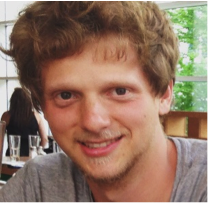 Alex McAlvay, PhD student in Botany. Alex McAlvay is a Botany Ph.D. student in Dr. Eve Emshwiller's lab at the University of Wisconsin-Madison. He became he became passionate about traditional plant management while studying Biology and Anthropology at Western Washington University. Since his undergraduate, he has worked to promote the continuity of traditional ecological knowledge with the Huichol Center for Cultural Survival and Traditional Arts, Herbal Anthropology Project, Common River, and other non-profit organizations. The Ecological Knowledge Research Fellowship will support Alex's transportation, interviews, and herbarium collections in the Mexican states of Oaxaca and Puebla. His dissertation focuses on the formation of new ecological knowledge around introduced plants and the evolutionary implications of these new relationships for the plants. Specifically, he studies the interactions between seven highland Mexican cultures and (delicious) introduced feral field mustard (Brassica rapa).
Alex McAlvay, PhD student in Botany. Alex McAlvay is a Botany Ph.D. student in Dr. Eve Emshwiller's lab at the University of Wisconsin-Madison. He became he became passionate about traditional plant management while studying Biology and Anthropology at Western Washington University. Since his undergraduate, he has worked to promote the continuity of traditional ecological knowledge with the Huichol Center for Cultural Survival and Traditional Arts, Herbal Anthropology Project, Common River, and other non-profit organizations. The Ecological Knowledge Research Fellowship will support Alex's transportation, interviews, and herbarium collections in the Mexican states of Oaxaca and Puebla. His dissertation focuses on the formation of new ecological knowledge around introduced plants and the evolutionary implications of these new relationships for the plants. Specifically, he studies the interactions between seven highland Mexican cultures and (delicious) introduced feral field mustard (Brassica rapa).
Indigenous Ethnobiologist Fellowship
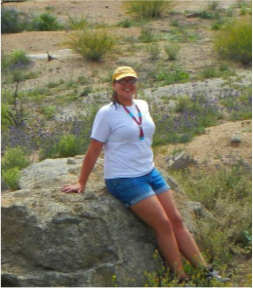 Jessica Orozco, PhD student at the Rancho Santa Ana Botanic Garden, through Claremont Graduate University. As an Indigenous graduate student in botany, her research interests lie in the floristics of the California flora; she is currently completing a floristic study in the southern Sierra Nevada. Other research interests include studying the relationships between people, culture and plants and how anthropogenic forces have influenced plant selection and distribution of species. For her PhD project, Jessica is interested in investigating how Indigenous peoples' use and trade of Salvia columbariae has effected its distribution. The trading and selection of S. columbariae seeds among tribes in North America could have expanded its current distribution into regions not previously occupied. Jessica is investigating genetic signatures of plants throughout this species’ geographic distribution, in a range of habitats, and in relation to known trajectories of human transport in order to try to reconstruct patterns of anthropogenic long-distance dispersal.
Jessica Orozco, PhD student at the Rancho Santa Ana Botanic Garden, through Claremont Graduate University. As an Indigenous graduate student in botany, her research interests lie in the floristics of the California flora; she is currently completing a floristic study in the southern Sierra Nevada. Other research interests include studying the relationships between people, culture and plants and how anthropogenic forces have influenced plant selection and distribution of species. For her PhD project, Jessica is interested in investigating how Indigenous peoples' use and trade of Salvia columbariae has effected its distribution. The trading and selection of S. columbariae seeds among tribes in North America could have expanded its current distribution into regions not previously occupied. Jessica is investigating genetic signatures of plants throughout this species’ geographic distribution, in a range of habitats, and in relation to known trajectories of human transport in order to try to reconstruct patterns of anthropogenic long-distance dispersal.
Urban Ethnobiology Fellowship
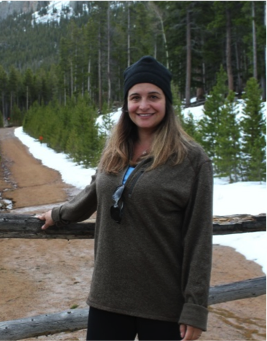 Diana Chen, PhD student in the Environmental Dynamics program at the University of Arkansas in Fayetteville. Diana's research interests include Urban Ethnobiology, Native American Ethnobiology, Deep Ecology, and Food Studies. Her research proposal is for an ethnographic study of foodways in the burgeoning Marshallese community in the relatively small mid-South city of Springdale, Arkansas. Studies of food and culture have become immensely popular among both academics and the general public, however there is not yet a work of this sort for the Republic of the Marshall Islands (RMI) or its related communities even though Global Change threatens to submerge the RMI within this generation. Diana’s research seeks to explore how knowledge of traditional Marshallese foodways is conserved or transformed by immigration to Springdale, and to preserve this knowledge for future generations of Marshallese people.
Diana Chen, PhD student in the Environmental Dynamics program at the University of Arkansas in Fayetteville. Diana's research interests include Urban Ethnobiology, Native American Ethnobiology, Deep Ecology, and Food Studies. Her research proposal is for an ethnographic study of foodways in the burgeoning Marshallese community in the relatively small mid-South city of Springdale, Arkansas. Studies of food and culture have become immensely popular among both academics and the general public, however there is not yet a work of this sort for the Republic of the Marshall Islands (RMI) or its related communities even though Global Change threatens to submerge the RMI within this generation. Diana’s research seeks to explore how knowledge of traditional Marshallese foodways is conserved or transformed by immigration to Springdale, and to preserve this knowledge for future generations of Marshallese people.
2015 GRADUATE RESEARCH FELLOWS
Ecological Knowledge Research Fellowship
 Maia Dedrick, PhD Student in Anthropology, University of North Carolina, Chapel Hill. Maia Dedrick is a graduate student in anthropological archaeology at the UNC at Chapel Hill, studying with Dr. Margie Scarry and Dr. Patricia McAnany. Her dissertation research is a study of household foodways and economic activities within the community of Tahcabo, Yucatán, Mexico, over an extended period of time, from the Late Classic through Colonial periods (600-1800 CE). She grew up in a musical family in St. Paul, MN, and loves to play cello. The Ecological Knowledge Research Fellowship will support Maia’s ethnobotanical research on rejolladas, or dry solution sinkholes with properties advantageous for cultivation, within the community of Tahcabo. It will consist of interviews with owners of the rejolladas located in town and the collection of herbarium specimens and plant comparative material for future archaeological research. Interviews will address land tenure, garden maintenance, other uses of rejolladas, and their roles in agricultural intensification.
Maia Dedrick, PhD Student in Anthropology, University of North Carolina, Chapel Hill. Maia Dedrick is a graduate student in anthropological archaeology at the UNC at Chapel Hill, studying with Dr. Margie Scarry and Dr. Patricia McAnany. Her dissertation research is a study of household foodways and economic activities within the community of Tahcabo, Yucatán, Mexico, over an extended period of time, from the Late Classic through Colonial periods (600-1800 CE). She grew up in a musical family in St. Paul, MN, and loves to play cello. The Ecological Knowledge Research Fellowship will support Maia’s ethnobotanical research on rejolladas, or dry solution sinkholes with properties advantageous for cultivation, within the community of Tahcabo. It will consist of interviews with owners of the rejolladas located in town and the collection of herbarium specimens and plant comparative material for future archaeological research. Interviews will address land tenure, garden maintenance, other uses of rejolladas, and their roles in agricultural intensification.
Indigenous Ethnobiologist Fellowship
 Blaire Topash-Caldwell, PhD Student in Anthropology, University of New Mexico. Blaire is an enrolled member of the Pokagon Band of Potawatomi Indians and is currently a graduate student in the anthropology PhD program at the University of New Mexico. Her ethnographic research focuses on Indigenous artisanship, traditional ecological knowledge, and natural resource management policy in the Great Lakes area. She has worked in the Department of Natural Resources for her tribe, specifically in Tribal Historic Preservation, and is currently a liaison the Ortiz Center for Intercultural Studies at UNM where she does community outreach and community-based projects with Pueblos in the Southwest. The Indigenous Ethnobiologist Fellowship will support her research on Anishinaabe traditional black ash tree basketry in tribal communities in the Great Lakes area. Her focus is on the ways in which these activities inform and intersect with tribally-based natural resource management initiatives deployed to combat the spread of an invasive species called the Emerald Ash Borer. She is investigating the roles of traditional knowledge systems in these initiatives, as well as the relationship between Indigenous ecological strategies and larger natural resource management policy.
Blaire Topash-Caldwell, PhD Student in Anthropology, University of New Mexico. Blaire is an enrolled member of the Pokagon Band of Potawatomi Indians and is currently a graduate student in the anthropology PhD program at the University of New Mexico. Her ethnographic research focuses on Indigenous artisanship, traditional ecological knowledge, and natural resource management policy in the Great Lakes area. She has worked in the Department of Natural Resources for her tribe, specifically in Tribal Historic Preservation, and is currently a liaison the Ortiz Center for Intercultural Studies at UNM where she does community outreach and community-based projects with Pueblos in the Southwest. The Indigenous Ethnobiologist Fellowship will support her research on Anishinaabe traditional black ash tree basketry in tribal communities in the Great Lakes area. Her focus is on the ways in which these activities inform and intersect with tribally-based natural resource management initiatives deployed to combat the spread of an invasive species called the Emerald Ash Borer. She is investigating the roles of traditional knowledge systems in these initiatives, as well as the relationship between Indigenous ecological strategies and larger natural resource management policy.
Urban Ethnobiology Fellowship
 Kerri Brown, PhD Student in Anthropology, Southern Methodist University. Kerri is a Ph.D. student in medical anthropology at Southern Methodist University in Dallas, Texas. She received her B.A. in anthropology and psychology from the University of Texas at Austin in 2011, and her M.A. in medical anthropology from Southern Methodist University in 2014. The Urban Ethnobiology Fellowship will support Kerri's dissertation research in Rio de Janeiro on recently implemented policies governing the use and growth of medicinal plants in Brazil, and those policies' effects on cultural meanings surrounding medicinal plants at the local level. Specifically, she is interested in the ways that African diasporic communities use their knowledge of medicinal plants to gain recognition from the Brazilian government and the general public.
Kerri Brown, PhD Student in Anthropology, Southern Methodist University. Kerri is a Ph.D. student in medical anthropology at Southern Methodist University in Dallas, Texas. She received her B.A. in anthropology and psychology from the University of Texas at Austin in 2011, and her M.A. in medical anthropology from Southern Methodist University in 2014. The Urban Ethnobiology Fellowship will support Kerri's dissertation research in Rio de Janeiro on recently implemented policies governing the use and growth of medicinal plants in Brazil, and those policies' effects on cultural meanings surrounding medicinal plants at the local level. Specifically, she is interested in the ways that African diasporic communities use their knowledge of medicinal plants to gain recognition from the Brazilian government and the general public.
If you are interested in applying for one of the Society of Ethnobiology’s Graduate Research Fellowships, see the announcement here.
